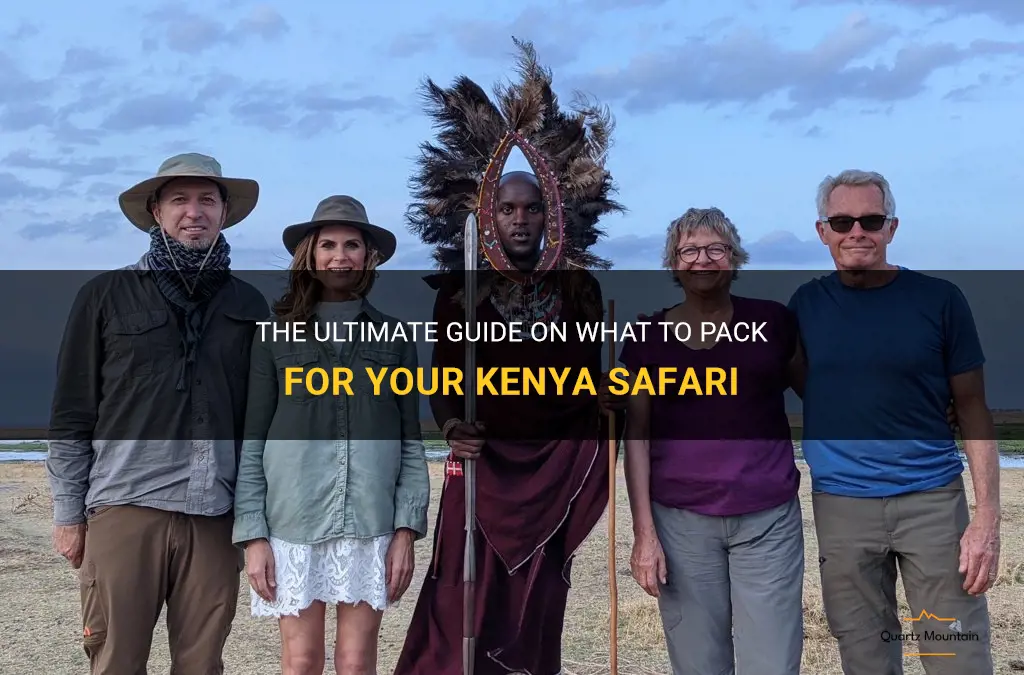
Embarking on a thrilling Kenya safari is a dream come true for many adventure seekers. The vast landscapes, diverse wildlife, and rich cultural heritage make it a truly unforgettable experience. However, ensuring you have the right essentials packed is crucial to make the most of your safari adventure. In this ultimate guide, we will explore everything you need to know about what to pack for your Kenya safari, from clothing and accessories to essential gear and equipment. So, grab your backpack, put on your safari hat, and let's dive into the exciting world of safari adventures in Kenya.
What You'll Learn
- What essential clothing items should I pack for a Kenya safari?
- What type of footwear is recommended for a safari in Kenya?
- Are there any specific toiletries or personal care items I should bring on a Kenya safari?
- Should I pack any specific medications or first aid supplies for a safari in Kenya?
- Are there any additional items or equipment I should consider bringing on a Kenya safari for optimal comfort and convenience?

What essential clothing items should I pack for a Kenya safari?
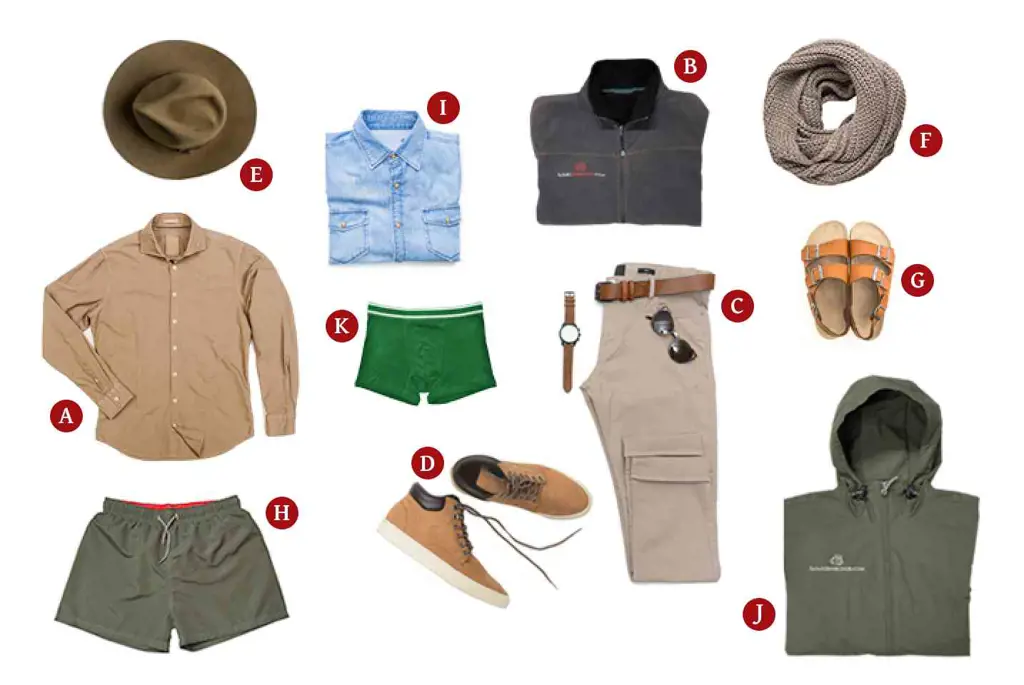
When planning a safari in Kenya, it is essential to pack the right clothing items to ensure comfort and protection throughout your trip. The clothing you bring should be suitable for the African climate, provide sun protection, and be comfortable for long hours spent outdoors. In this article, we will guide you on what essential clothing items to pack for a Kenya safari.
- Light, breathable clothing: Kenya has a warm climate, so it is crucial to pack light and breathable clothing. Opt for items made from natural fabrics like cotton or linen, as they allow air to circulate and help to keep you cool. Loose-fitting shirts and pants are also recommended to prevent overheating.
- Long-sleeved shirts and pants: Even though the weather might be hot during the day, it is advisable to pack long-sleeved shirts and pants for additional sun protection. The sleeves and pant legs will shield your skin from the intense African sun and also help prevent insect bites.
- Hat with a brim: A wide-brimmed hat is a must-have item for a Kenya safari. It will provide shade for your face, neck, and ears, protecting them from the sun's harmful rays. Opt for a hat with UPF (Ultraviolet Protection Factor) to ensure maximum sun protection.
- Lightweight jacket or sweater: Despite the heat during the day, temperatures can drop significantly in the early morning or evening. It is wise to pack a lightweight jacket or sweater to layer over your clothing for added warmth. This will ensure that you stay comfortable when the temperature changes.
- Comfortable walking shoes: A safari often involves walking and exploring the African wilderness, so it is crucial to pack comfortable walking shoes. Opt for closed-toe shoes with good traction to protect your feet and help prevent slips and falls on uneven terrain. Make sure to break in your shoes before the trip to avoid blisters or discomfort.
- Socks: Don't forget to pack enough pairs of socks to wear with your walking shoes. Opt for moisture-wicking and breathable socks to keep your feet dry and comfortable throughout the day. It is also a good idea to pack a few pairs of thicker socks for cooler mornings and evenings.
- Swimwear: Many safari lodges and camps in Kenya have swimming pools or nearby water bodies where you can cool off during the day. Packing swimwear is ideal for taking a refreshing dip and enjoying some relaxation time between game drives or other activities.
- Neck gaiter or scarf: A neck gaiter or scarf can serve multiple purposes on a safari. It can provide additional sun protection for your neck and can also be used as a face covering in dusty environments. Moreover, it can be handy for keeping warm during chilly early morning game drives.
- Insect repellent clothing: To protect yourself from mosquito bites and other insects, consider packing clothing treated with insect repellent. Many outdoor clothing brands offer shirts, pants, and socks with built-in insect repellent properties. These clothing items can help minimize the risk of insect-borne diseases.
- Binoculars and camera gear: Although not clothing items per se, binoculars and camera gear are essential accessories for a Kenya safari. A pair of binoculars will enhance your wildlife viewing experience, allowing you to observe animals in greater detail. Additionally, don't forget to pack your camera, spare batteries, memory cards, and any necessary lenses to capture the incredible moments you encounter on your safari.
In conclusion, packing the right clothing items for a Kenya safari is crucial for a comfortable and enjoyable experience. Opt for light, breathable clothing made from natural fabrics, long-sleeved shirts, and pants for sun protection, a wide-brimmed hat, and a lightweight jacket or sweater for temperature fluctuations. Remember to pack comfortable walking shoes, swimwear, and insect repellent clothing to stay protected and comfortable throughout your safari adventure. Don't forget your binoculars and camera gear to capture the amazing wildlife and landscapes you will encounter on your journey.
Choosing the Perfect Size Box for Packing Clothes: Essential Tips and Suggestions
You may want to see also

What type of footwear is recommended for a safari in Kenya?
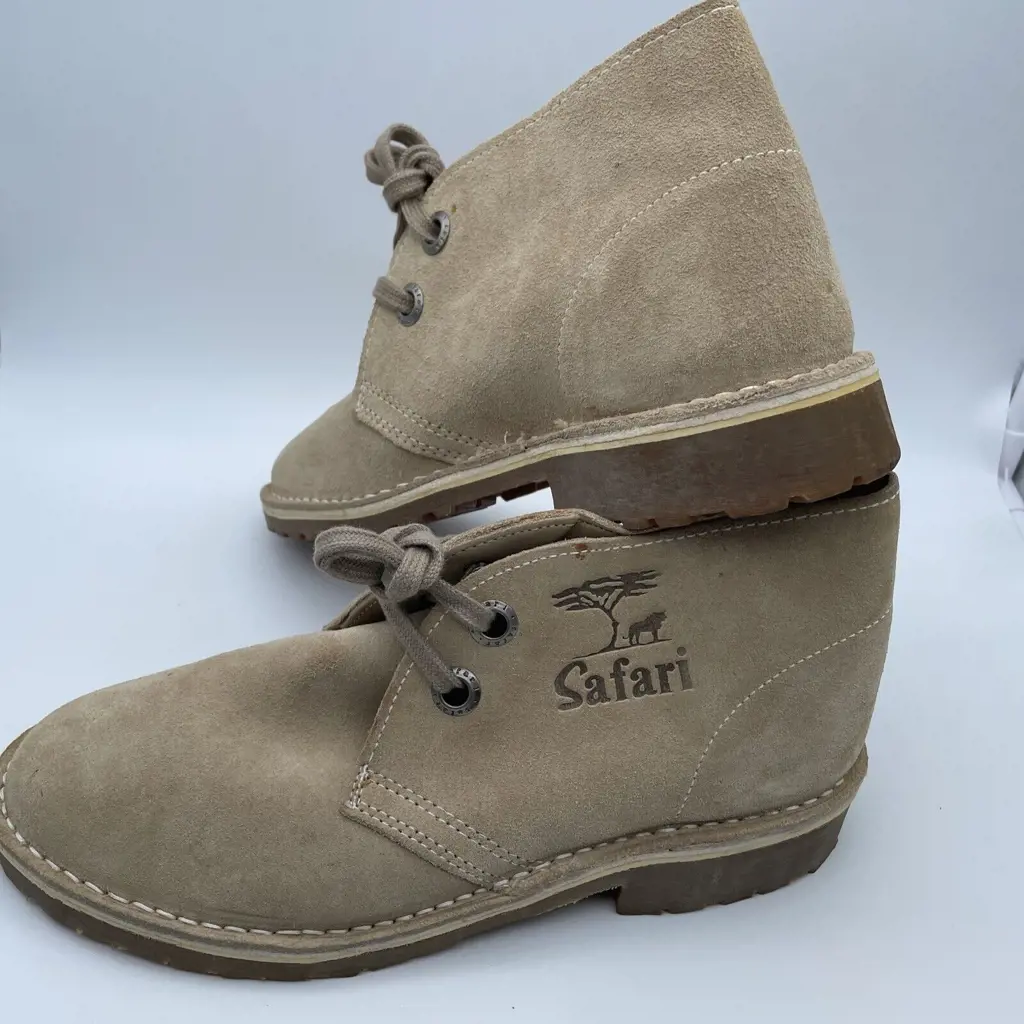
When preparing for a safari in Kenya, it is essential to consider the appropriate footwear to ensure comfort and safety during your adventure. The terrain in Kenya can be rugged and diverse, so choosing the right shoes is crucial for an enjoyable experience. Whether you are going on a walking safari or a game drive, here are some tips to help you select the best footwear for your Kenyan safari:
- Comfort is key: Opt for shoes that are comfortable and provide good support. You will be spending long hours on your feet, so it is essential to avoid any discomfort or blisters. Look for shoes with cushioned soles and breathable materials to keep your feet cool and comfortable throughout the day.
- Closed-toe shoes: The terrain in Kenya can be uneven, with rocky paths, thorny bushes, and potentially dangerous wildlife. To protect your feet from injury, it is recommended to wear closed-toe shoes. These will shield your feet from any sharp objects or potential hazards you may encounter during your safari.
- Lightweight and durable: Choose shoes that are lightweight but durable enough to withstand the demanding conditions of a safari. Look for materials such as canvas or synthetic fabrics that offer durability without adding unnecessary weight. This will allow you to move around easily while still providing protection and support.
- Waterproof or quick-drying: Kenya's national parks and reserves can experience sporadic rain showers, especially during the rainy seasons. To keep your feet dry and comfortable, consider footwear that is either waterproof or quick-drying. You may encounter muddy trails or wet grass, and having shoes that can handle these conditions will make your safari more enjoyable.
- Ankle support: Opt for shoes that provide good ankle support, especially if you plan to do any walking or hiking during your safari. Ankle support is crucial for stability and helps prevent sprains or injuries on uneven terrain. High-top hiking boots or sturdy sneakers are excellent options for optimal ankle support.
- Color and camouflage: While not essential, it is advisable to choose shoes with neutral colors or camouflage patterns. Brightly colored footwear can attract unnecessary attention from wildlife, which may affect their behavior or scare them away. Neutral-colored shoes blend in with the surroundings and allow for a more immersive wildlife experience.
- Break-in your shoes before the safari: It is essential to break-in your shoes before embarking on your safari. This will help prevent blisters and discomfort during your adventure. Wear your shoes for a few weeks before your trip to ensure they fit properly and are comfortable for long periods of walking or standing.
In conclusion, when preparing for a safari in Kenya, it is vital to choose footwear that offers comfort, support, and protection. Closed-toe shoes with good ankle support, cushioned soles, and durability are recommended. Opt for lightweight and waterproof or quick-drying materials to adapt to the varied terrain and potential weather conditions. By following these tips, you can ensure your feet are properly equipped for an unforgettable safari experience in Kenya.
Planning a Three Day Trip from Houston to Baltimore: What to Pack
You may want to see also

Are there any specific toiletries or personal care items I should bring on a Kenya safari?
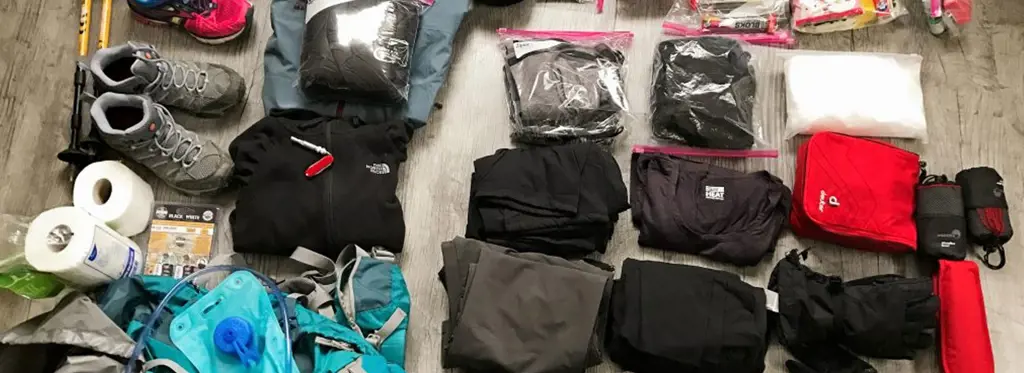
When planning a safari adventure in Kenya, packing the right toiletries and personal care items is essential to ensure a comfortable and enjoyable trip. While many safari lodges and camps provide basic amenities, it's always a good idea to bring your own toiletries to ensure you have everything you need. Here are some specific items you should consider bringing on your Kenya safari:
- Sunscreen: Kenya's tropical climate means that the sun can be quite strong, even during the cooler months. It's important to protect your skin from harmful UV rays by using a high SPF sunscreen. Look for a sunscreen that is water-resistant and easily absorbed.
- Insect repellent: Kenya is home to a variety of insects, including mosquitoes that can carry diseases such as malaria. To protect yourself from insect bites, bring an effective insect repellent containing DEET. Apply it to exposed skin before heading out on safari.
- Hand sanitizer: While most safari lodges and camps provide handwashing facilities, having a small bottle of hand sanitizer is useful when you're on the go. It helps keep your hands clean, especially before meals or after touching animals or surfaces in the wilderness.
- Wet wipes: Wet wipes are versatile and come in handy during a safari. They can be used for quick clean-ups, refreshing your face and body, and wiping away sweat or dirt. Look for biodegradable wipes to minimize your impact on the environment.
- Lip balm: The African sun can be harsh on your lips, causing them to become dry and chapped. Make sure to pack a lip balm with SPF protection to keep your lips moisturized and protected throughout your safari.
- Medications: If you have any specific medical conditions or allergies, make sure to bring an adequate supply of medications. It's also wise to carry a basic first-aid kit with essentials like band-aids, antiseptic cream, pain relievers, and any prescription medications you may require.
- Toiletries: While most lodges and camps provide basic toiletries such as soap and shampoo, it's always best to bring your own preferred brands. Pack travel-sized bottles to save space and ensure you have your favorite products with you.
- Toilet paper: While some lodges and camps provide toilet paper, others may not. It's a good idea to bring a small roll or a few individual packets of toilet paper in case it's not readily available.
- Towel: Although most lodges and camps provide towels, they may not always be of the best quality or size. Bringing a lightweight, quick-drying travel towel can be convenient for outings or days when you may need an extra towel.
- Ziplock bags: These come in handy for storing wet or dirty clothes, preventing leakages in your luggage, and keeping your toiletries organized. They also help protect your belongings from dust or moisture during your safari.
Remember to pack all your toiletries in leak-proof containers and pack them securely in your luggage to avoid any spills or breakages. Additionally, be mindful of the size and weight restrictions imposed by airlines to ensure a hassle-free journey.
By bringing these specific toiletries and personal care items, you can ensure a comfortable and well-prepared safari experience in Kenya. Enjoy your adventure and don't forget to capture the incredible wildlife moments!
Essential Items to Pack for Your Cancun Vacation
You may want to see also

Should I pack any specific medications or first aid supplies for a safari in Kenya?
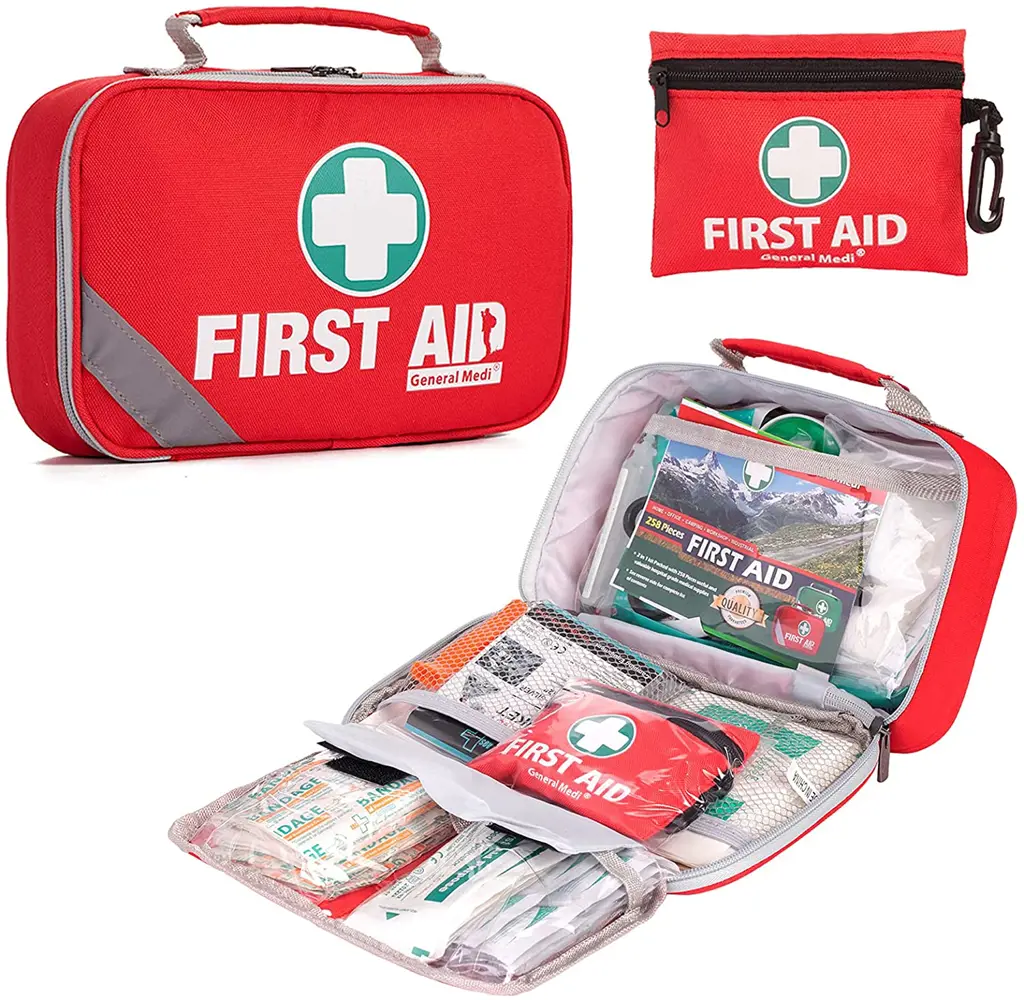
When going on a safari in Kenya, it is important to be prepared for any medical emergencies that may arise. While Kenyan game reserves and safari camps typically have medical facilities and staff to handle minor injuries and common ailments, it is prudent to pack a few essential medications and first aid supplies to ensure your health and well-being during your trip.
Over-the-counter Medications:
It is advisable to pack a basic selection of over-the-counter medications such as pain relievers (e.g., ibuprofen or acetaminophen), antihistamines (for allergies or insect bites), and antidiarrheal medications. These can come in handy for headaches, allergies, or minor stomach upsets that may occur during your safari.
Prescription Medications:
If you take any prescription medications regularly, ensure that you have an ample supply for the duration of your trip. It is also advisable to carry a copy of your prescription or a letter from your healthcare provider just in case you need to refill your medications while in Kenya. Remember to keep your medications in their original packaging with clearly labeled dosage information.
Insect Repellent:
Kenya is known for its abundant wildlife, but it is also home to various insects and mosquitoes. Pack a good quality insect repellent that contains DEET to protect yourself from mosquito bites and reduce the risk of mosquito-borne diseases such as malaria or dengue fever. It is also a good idea to wear long-sleeved shirts and long pants, particularly during the early morning and evening hours when mosquitoes are most active.
Sunscreen and Lip Balm:
The African sun can be intense, so be sure to pack a high-SPF sunscreen to protect your skin from harmful UV rays. Opt for a sunscreen that offers broad-spectrum protection and apply it liberally before heading out on your safari. Additionally, bring a lip balm with SPF to prevent your lips from getting dry or chapped.
First Aid Kit:
While most safari camps and lodges have first aid supplies, it is advisable to carry a small, basic first aid kit to handle minor injuries or emergencies. Your first aid kit should include adhesive bandages, antiseptic wipes, sterile gauze pads, adhesive tape, tweezers, scissors, and disposable gloves. It is also a good idea to include a blister treatment and a small supply of any personal prescription medications or medical supplies, such as an epinephrine auto-injector for severe allergic reactions.
Hand Sanitizer:
Regular hand hygiene is crucial, especially in situations where clean water may not be readily available. Carry a travel-sized hand sanitizer containing at least 60% alcohol to keep your hands clean and prevent the spread of germs and infections.
In conclusion, while Kenyan safari camps and reserves often have medical facilities and staff, it is essential to pack a few essential medications and first aid supplies for your own peace of mind. By being prepared with medications for common ailments, insect repellent, sunscreen, and a basic first aid kit, you can ensure a safe and healthy safari experience in Kenya.
Essential Items You Should Pack for a Hot Climate
You may want to see also

Are there any additional items or equipment I should consider bringing on a Kenya safari for optimal comfort and convenience?
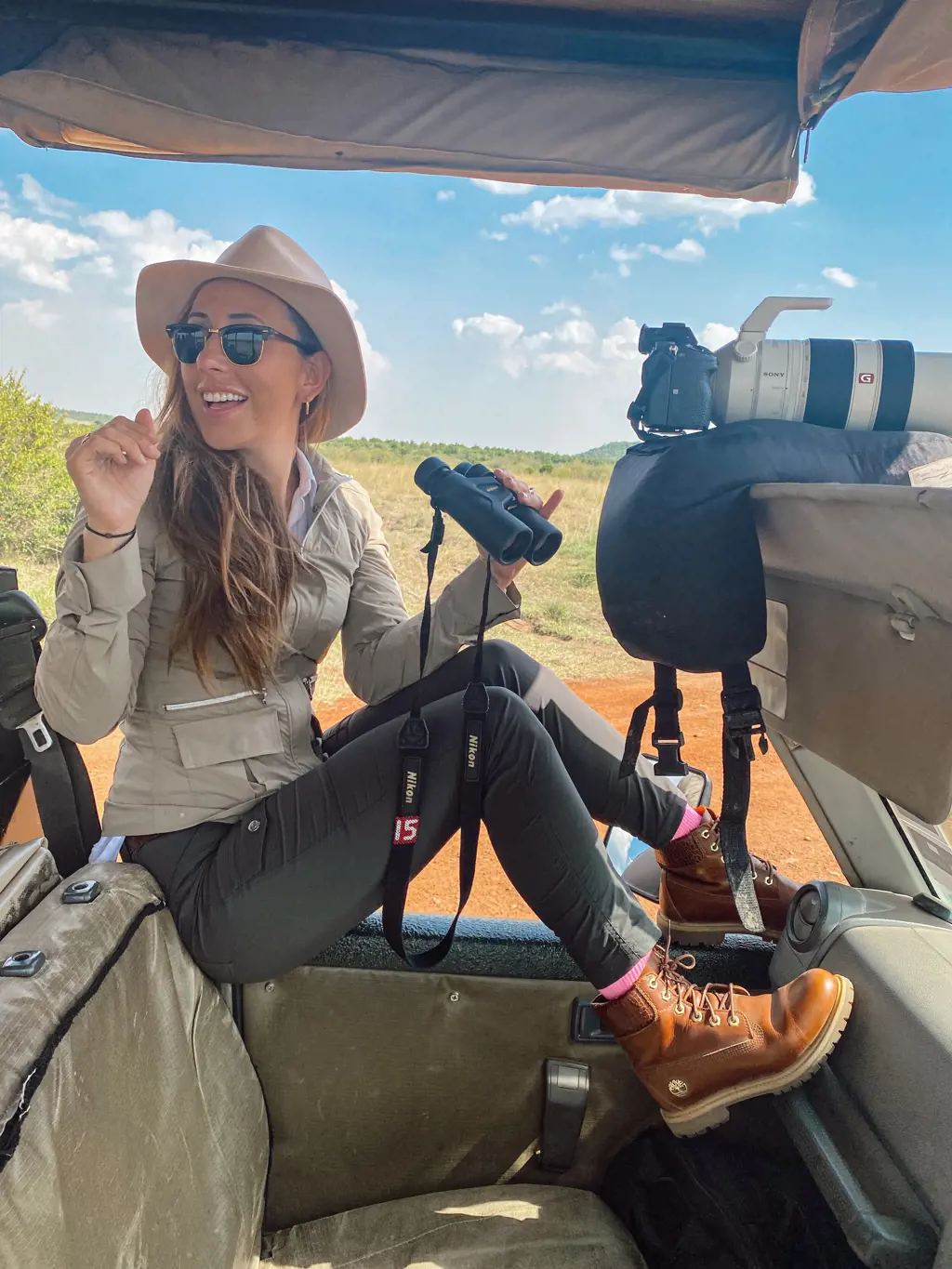
When planning a Kenya safari, it's important to be well-prepared to ensure optimal comfort and convenience throughout your trip. While the essentials like clothing, footwear, and personal items are important, there are a few additional items or equipment that can enhance your safari experience. Here are some items to consider bringing along:
- Binoculars: A good pair of binoculars is essential for spotting wildlife at a distance. It allows you to observe animals in their natural habitat without disturbing them. Look for binoculars with a high magnification power and good optics for the best results.
- Camera and telephoto lens: Kenya is known for its stunning wildlife and landscapes, so a good camera is a must to capture those memorable moments. Consider investing in a telephoto lens to capture close-up shots of animals from a safe distance. It's also a good idea to bring extra memory cards and batteries to ensure you don't miss out on any photo opportunities.
- Power bank and travel adapter: Electricity supply might not be available at all times during your safari, so a power bank can come in handy to keep your devices charged. Additionally, a travel adapter is essential to charge your electronics in Kenya, as the socket type differs from what you may be used to.
- Insect repellent: Kenya is home to various insects, including mosquitoes. To protect yourself from bites and potential diseases, it's important to bring a good quality insect repellent. Look for products that contain DEET for maximum effectiveness.
- Sunscreen and hat: The African sun can be intense, so it's crucial to protect your skin from harmful UV rays. Be sure to bring a broad-spectrum sunscreen with a high SPF and a wide-brimmed hat to shield your face and neck from the sun.
- Extra layers of clothing: While the days in Kenya can be hot, the nights can get chilly, especially if you're staying in tents or lodges without central heating. Bring along some lightweight, warm layers such as a fleece or light jacket to keep you comfortable during cooler evenings or early morning game drives.
- Reusable water bottle: Staying hydrated is important, especially when spending long hours outdoors. Instead of buying bottled water, consider bringing a reusable water bottle that you can refill throughout your trip. This not only helps reduce plastic waste but also ensures you always have water on hand.
- Comfortable daypack: A daypack is essential for carrying your essentials during game drives or nature walks. Look for a pack that is lightweight, water-resistant, and has padded shoulder straps for added comfort.
- Travel insurance: It's always a good idea to have travel insurance that covers medical expenses, trip cancellations or delays, and lost or stolen belongings. Make sure to choose a policy that suits your needs and provides adequate coverage for your safari.
By considering these additional items and equipment, you can enhance your comfort and convenience during your Kenya safari. Remember to pack them in a lightweight and compact manner to minimize the load you have to carry. Enjoy your safari adventure and make the most out of your wildlife encounters in the beautiful landscapes of Kenya.
The Essential Guide to Naming Your Small Bag for Toiletries
You may want to see also
Frequently asked questions
When packing for a Kenya safari, it is important to pack comfortable and lightweight clothing that will keep you cool during the day and warm during the cooler evenings. Opt for neutral-colored clothing to blend in with the surroundings. Pack long-sleeved shirts and long pants to protect yourself from the sun and insect bites. Also, don't forget to bring a light jacket or sweater for the colder mornings and evenings.
For a Kenya safari, it is best to pack sturdy and comfortable closed-toe shoes or boots. These will provide protection and support while walking or hiking through various terrains. Additionally, don't forget to pack a pair of sandals or flip-flops for relaxing at the camp or lodge.
In addition to clothing and footwear, there are a few essential items that you should pack for a Kenya safari. These include a wide-brimmed hat or cap to protect yourself from the sun, sunglasses to shield your eyes from the glare, and sunscreen with a high SPF to protect your skin from the harsh African sun. Don't forget to bring a reusable water bottle to stay hydrated, insect repellent to ward off mosquitoes, and a camera to capture the amazing wildlife and landscapes.
While on a Kenya safari, it is recommended to pack a good quality camera with a zoom lens to capture the wildlife at a distance. You may also want to bring a pair of binoculars to get a closer look at the animals and birdlife. Additionally, it is important to bring extra camera batteries, memory cards, and a portable charger to ensure you don't miss out on any precious moments.







